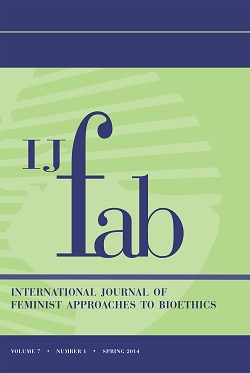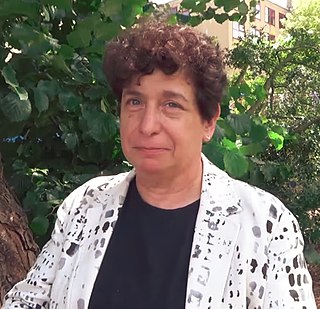Bioethics is both a field of study and professional practice, interested in ethical issues related to health, including those emerging from advances in biology, medicine, and technologies. It proposes the discussion about moral discernment in society and it is often related to medical policy and practice, but also to broader questions as environment, well-being and public health. Bioethics is concerned with the ethical questions that arise in the relationships among life sciences, biotechnology, medicine, politics, law, theology and philosophy. It includes the study of values relating to primary care, other branches of medicine, ethical education in science, animal, and environmental ethics, and public health.

The Hastings Center is an independent, nonpartisan bioethics research institute and think tank based in Garrison, New York.

Ulf Torbjörn Harald Tännsjö is a Swedish professor of philosophy and public intellectual. He has held a chair in Practical Philosophy at Stockholm University since 2002 and he is Affiliated Professor of Medical Ethics at Karolinska Institute. Tännsjö was associate professor of philosophy at Stockholm University from 1976 to 1993 and Research Fellow in Political Philosophy at the Swedish Research Council in the Humanities and Social Sciences between 1993 and 1995. Thereafter, he was a professor of Practical Philosophy at Göteborg University 1995–2001.

Gregory E. Pence is an American philosopher.
Mark Kuczewski is an American philosopher and bioethicist who has been a key contributor to the New Professionalism movement in medicine and medical education. In general, interest in professionalism has been widespread in medicine probably owing to the increasing regulatory and economic pressures on the practice of medicine. Many physicians have sought to identify the focal meaning of what it is to be a doctor in an effort to revitalize the profession. Kuczewski has been among a group that includes Richard and Sylvia Creuss, John Coulehan, and Matthew Wynia who see medical professionalism as including a commitment to social justice. That is, while professionalism entails such things as etiquette, communication skills, and basic medical ethics, professions are also expected to be leaders in educating the public and in advocating for the health of the public. Such leadership requires an understanding of the factors that lead some patient populations to be underserved and a commitment to bringing about social change to ameliorate these problems. The New Professionalism movement in medicine is a revival of communitarian bioethics that focus on the kinds of people and society we wish to be rather than on particular ethical questions of right and wrong. This focus on the relationship between the professional and the community can have important implications for medical education and professional development. While not eschewing case analysis and problem solving, the emphasis on the development of the person has created a renewed interest in narrative methods and reflection. Kuczewski has been an outspoken critic of efforts in medical education to focus on quantitative measures of professionalism education. He has argued that in an effort to make professionalism education “objective,” many medical educators are equating professionalism with trivial but easily measured behaviors. Kuczewski’s interest in professionalism and social justice has led him to pursue ethical issues in the interactions between medicine and recent immigrant populations. He has brought his work in communitarian and casuistic methods to bear on questions such as medical repatriation, insurance for undocumented immigrants, and the eligibility of DREAMers to become practicing physicians. His scholarship and advocacy was the catalyst for the Loyola University Chicago Stritch School of Medicine becoming the first medical school in the United States to explicitly welcome applications from DREAMers with Deferred Action for Childhood Arrivals (DACA) status. Under Kuczewski’s direction, the Neiswanger Institute for Bioethics and Health Policy at Loyola University Chicago has become a leader in educational programming to promote the relationship between medical professionalism and social justice. The Neiswanger Institute has contributed elements to the Stritch curriculum that explore the relationship between the business of medicine and social justice. The Institute also has online master of arts and doctoral programs that incorporating public health and leadership training in order to help health care professionals across the United States to promote service to the underserved. Kuczewski was elected president of the American Society for Bioethics and Humanities and served a two-year term from 2009 to 2011. The ASBH is the major professional association in the United States for individuals engaged in bioethics and medical humanities. During his term, the society aggressively began moving toward a process called Quality Attestation that will attest to the credentials and expected competence of clinical ethics consultants.

Daniel Isaac Wikler is an American public health educator, philosopher, and medical ethicist. He is currently the Mary B. Saltonstall Professor of Population Ethics and Professor of Ethics and Population Health in the Department of Global Health and Population of the Harvard T.H. Chan School of Public Health in Boston. He is Director and a core faculty member in the Harvard Program in Ethics and Health (PEH). His current research interests are ethical issues in population and international health, including the allocation of health resources, health research involving human subjects, organ transplant ethics, and ethical dilemmas arising in public health practice, and he teaches several courses each year. He is a fellow of the Hastings Center, an independent bioethics research institution.
Stephen Garrard Post has served on the Board of the John Templeton Foundation (2008-2014), which focuses on virtue and public life. He is a researcher, opinion leader, medical school professor, and best-selling author who has taught at the University of Chicago Medical School, Fordham University-Marymount, Case Western Reserve University School of Medicine (1988-2008) and Stony Brook University School of Medicine (2008-). He is widely known for his research on the ways in which giving can enhance the health and happiness of the giver, how empathy and compassionate care contribute to patient outcomes, ethical issues in caring for people with dementia, medical professionalism and the virtues, and positive psychology in relation to health and well-being. Post is an elected member of the College of Physicians of Philadelphia, the New York Academy of Medicine, and the Royal Society of Medicine, London. He was selected nationally as the Public Member of the United States Medical Licensing Examination (USMLE) Composite Committee (2000-2005), and was reappointed for outstanding contributions.
Feminist ethics is an approach to ethics that builds on the belief that traditionally ethical theorizing has undervalued and/or underappreciated women's moral experience, which is largely male-dominated, and it therefore chooses to reimagine ethics through a holistic feminist approach to transform it.
Leonard Michael Fleck is an American philosophy professor and medical ethicist. He earned his Ph.D. from St. Louis University in 1975 and taught courses at St. Mary's College (Indiana) before going on to teach and at Michigan State University where he currently holds a dual appointment with the philosophy department and the Center for Ethics and Humanities in the Life Sciences. Fleck was also a member of Hillary Clinton's Task Force on Health Reform in 1993 and the staff ethicist for the Michigan governor's task force on access to health care in 1989-1990.
Hilde Lindemann is an American philosophy professor and bioethicist and emerita professor at Michigan State University. Lindemann earned her B.A. in German language and literature in 1969 at the University of Georgia. Lindemann also earned her M.A. in theatre history and dramatic literature, in 1972, at the University of Georgia. Lindemann began her career as a copyeditor for several universities. She then moved on to a job at the Hastings Center in New York City, an institute focused on bioethics research, and co-authored book The Patient in the Family, with James Lindemann Nelson, before deciding to earn a Ph.D. in philosophy at Fordham University in 2000. Previously, she taught at the University of Tennessee and Vassar College and served as the associate editor of the Hastings Center Report (1990–95). Lindemann usually teaches courses on feminist philosophy, identity and agency, naturalized bioethics, and narrative approaches to bioethics at Michigan State University.
Thomas Tomlinson is a philosophy professor and medical ethicist currently teaching at Michigan State University, where he holds a joint appointment in the Lyman Briggs College and the philosophy department.
Peggy Jo DesAutels is an American academic and professor emeritus of philosophy at the University of Dayton. Her research focuses on moral psychology, feminist philosophy, feminist ethics, ethical theory, philosophy of mind, bioethics, medical ethics and cognitive science. She has received multiple awards and recognitions including Distinguished Woman in Philosophy for 2014 by the Eastern Division of Society for Women in Philosophy, and the 2017 Philip L. Quinn Prize by the American Philosophical Association.
Margaret Urban Walker is an American philosopher and academic who is the Donald J. Schuenke Chair Emerita in Philosophy at Marquette University. Before her appointment at Marquette, she was the Lincoln Professor of Ethics at Arizona State University, and before that she was at Fordham University. She has also previously held visiting appointments at Washington University in St. Louis, University of South Florida, and Catholic University of Leuven.
Eva Feder Kittay is an American philosopher. She is Distinguished Professor of Philosophy (Emerita) at Stony Brook University. Her primary interests include feminist philosophy, ethics, social and political theory, metaphor, and the application of these disciplines to disability studies. Kittay has also attempted to bring philosophical concerns into the public spotlight, including leading The Women's Committee of One Hundred in 1995, an organization that opposed the perceived punitive nature of the social welfare reforms taking place in the United States at the time.

IJFAB: International Journal of Feminist Approaches to Bioethics is a biannual peer-reviewed academic journal providing a forum in bioethics for feminist thought and debate. The journal is a publication of the International Network on Feminist Approaches to Bioethics. Mary Rawlinson was its inaugural editor (2006) and served in that capacity until she stepped down in 2016. She was replaced by a team of editors including Robyn Bluhm, Hilde Lindemann, Jamie Lindemann Nelson and Jackie Leach Scully. Kate Caras as an employee of Indiana University Press was the journal's publisher from 2006 to 2014. She then transitioned to the position of senior managing editor when production was taken over by the University of Toronto Press in 2014.

Joan Claire Tronto, is professor of political science at the University of Minnesota, and was previously professor of women's studies and political science at Hunter College and the Graduate School, City University of New York.
Rosemarie "Rosie" Tong is an American feminist philosopher. The author of 1998's Feminist Thought: A More Comprehensive Introduction, an overview of the major traditions of feminist theory, she is the emeritus distinguished professor of health care ethics in the Department of Philosophy at the University of North Carolina, Charlotte.

Lisa Campo-Engelstein is an American bioethicist and fertility/contraceptive researcher. She currently works at the University of Texas Medical Branch as the Harris L. Kempner Chair in the Humanities in Medicine Professor, the Director of the Institute for Bioethics & Health Humanities, and an Associate Professor in Preventive Medicine and Population Health. She is also a feminist bioethicist specializing in reproductive ethics and sexual ethics. She has been recognized in the BBC's list of 100 inspiring and influential women from around the world for 2019.






